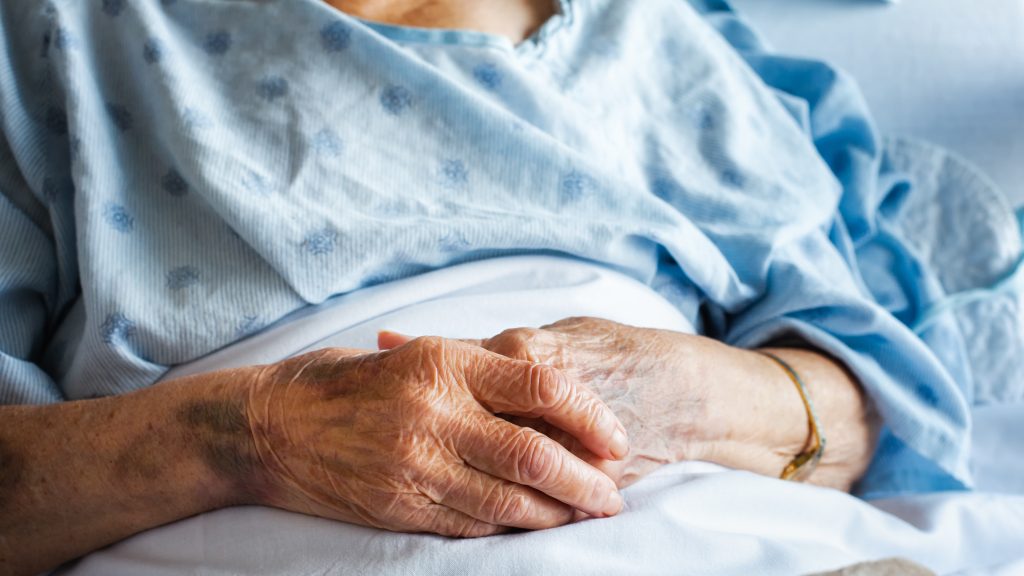Elder Abuse and Financial Exploitation in New York
October 8, 2021 by DCS Webteam
Getting old is hard. Few of our elderly clients say life gets easier as they age. But age moves on and with an aging population, claims of elder abuse are on the rise. Many elders are frail and dependent on their abusers for basic care. They are reluctant to complain because they don’t know how they will survive outside of their dependent condition. They suffer in silent fear and anxiety.
They are often isolated and feel fear and shame because of their limitations. Many are mentally incapacitated and are not able to articulate pain, hunger, thirst, neglect, and abandonment. It’s so sad. Regardless, the problem is widespread, and protection is needed!
In 1965, Congress began to investigate the extent of elder abuse and financial exploitation under the Federal Older Americans Act. Later the law required each State to create an Ombudsman program to investigate and prevent elder abuse, elder neglect, and elder financial exploitation. Today, Elder Abuse is still under-reported and perpetrators under prosecuted.

Categories of Elder Abuse and Exploitation
Because most of us regard the elderly with appreciation and respect, it’s hard to believe that there are those who would mistreat or take advantage of seniors. But elder abuse in NYC is all too real, and it’s up to the rest of us to hold these wrongdoers accountable. When we use the term “Elder Abuse”, we are including both physical, emotional, and financial abuse and exploitation. There are many dimensions to elder abuse. Some of it is physical or overt. But it can also take less obvious forms: neglectfulness, financial manipulation, negligent administration of medication, nursing home malpractice, etc. Fortunately, for most kinds of abuse or neglect, state and federal law provide meaningful recourse for victims and their families. Specifically, nursing homes are liable for failing to uphold a high standard of care when treating their residents. Family members, doctors, and other caretakers can also be held accountable for physical or financial abuse or neglect.
There are several basic categories of elder abuse:
- Domestic elder abuse is the abuse of an elderly person by someone who has a special relationship with the person ( a spouse, sibling, child, friend, caregiver or fiduciary relationship, i.e. Power of Attorney or Guardian), that occurs in the elder’s home, or in the home of a caregiver.
- Institutional elder abuse generally refers to abuse that occurs in residential facilities for older persons (e.g., nursing homes, assisted living residences, residential healthcare facilities, or rooming board and care facilities).
- Self-neglect or self-abuse is characterized as the behavior of an elderly person to him or herself that threatens his/her own health or safety. Self-neglect is generally found as a refusal (or failure) to carry out one or more activities of daily living (commonly referred to as ADL’s), including bathing, showering, dressing, getting in or out of bed or a chair, using the toilet, eating, taking medication (when indicated), and observing safety precautions. Self-Abuse is the intentional or unintentional harm the elderly person inflicts upon himself or herself whether voluntary or unknowing. Self-Abuse is often found among our most disturbed elderly family members, neighbors and acquaintances.
- Physical abuse is the use of physical force that may result in bodily injury, physical pain, or impairment. Physical abuse includes but is not limited to such acts of violence as striking (with or without an object), hitting, beating, pushing, shoving, shackling, slapping, kicking, pinching, spitting at, and burning. In addition, inappropriate use of a chemical (drug) and physical restraints, force- feeding, and physical punishment of any kind also are examples of physical abuse. Physical abuse may also include forcing a treatment(s) upon an elder who medically is capable of making voluntary healthcare decisions even after the elder has made known his or her a voluntary and informed choice regarding such treatment(s) but forcing a treatment(s) that is against their will or is medically inappropriate.
- Verbal, emotional or psychological abuse which is the infliction of mental anguish, pain, or distress through verbal and/or nonverbal actions and communications. It includes, but is not limited to, verbal assaults, insults, threats, intimidation, humiliation, and harassment. In addition, treating an elder like an infant; isolating an elder from his/her family, friends, or regular activities; giving the elder the “silent treatment;” and enforced social isolation are examples of emotional/psychological abuse.
- Gross Neglect is a frequent form of abuse and is a term that describes the willful absence and/or withholding of essential services and support which is necessary to maintain a person’s known welfare, health and safety. Gross neglect may also include the failure of a person who has a fiduciary responsibility to provide care for an elder (e.g., pay for necessary care). Gross neglect typically means a refusal or failure to provide an elderly person with life necessities such as food, water, clothing, shelter, personal hygiene, medicine, comfort, personal safety, and other essentials.
- Abandonment is the desertion of an elderly person by an individual who has assumed responsibility for providing care for the elderly person, or by a person with physical custody of the elder. This abandonment is generally by a person in an essential life care relationship with the aging person, i.e. a spouse, caregiver, child, or person in a fiduciary relationship.
What Does Elder Abuse Look Like?
Staff members and other residents are commonly the abusers in nursing homes, but anyone who has access to the facility can potentially harm its residents. By understanding the early warning signs of abuse, you can recognize when your loved one is in danger and intervene before it’s too late. The following are some common red flags of nursing home abuse:
- Malnutrition and dehydration
- Emotional withdrawal
- Bruises or bleeding
- Unexplained infections or diseases
- Sudden financial problems
- Changes in the resident’s legal documentation (power of attorney, will, etc)
How Can an Attorney Help?
Discovering that your loved one was abused by their caretaker can overwhelm you with stress or can even evoke feelings of guilt concerning your own responsibility. There is no need to go through this alone. An experienced attorney can help you hold the abusers accountable for their actions. With our help, you can conduct a comprehensive investigation into the incident and uncover concrete evidence to use in the courtroom.
While money isn’t the first thing on your mind, the compensation from an elder abuse lawsuit can support you throughout the legal proceedings and help your loved ones receive the proper care they need. Our attorneys have a proven track record of recovering damages in cases like yours and will never let an unethical third party devalue the extent of your situation. You need someone who will fiercely advocate for the rights of you and your family, and that’s Beldock & Saunders’s specialty.
Get Started with Beldock & Saunders
Elder abuse shouldn’t occur under any circumstances, and for it to happen to your loved one is an intolerable crime. Our compassionate attorneys understand how much your situation has affected you and want to offer their assistance during a traumatic period of your family’s life. All law firms are not the same, and Beldock & Saunders has the resources to help you fight back against elder abuse.







